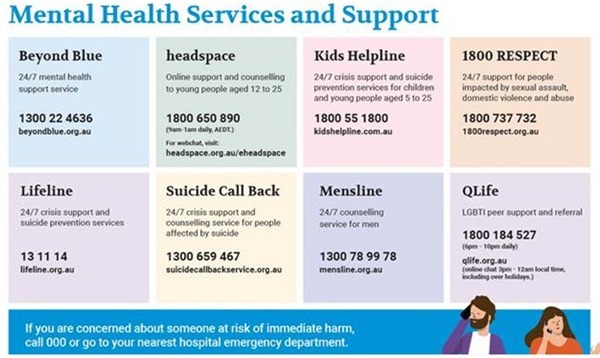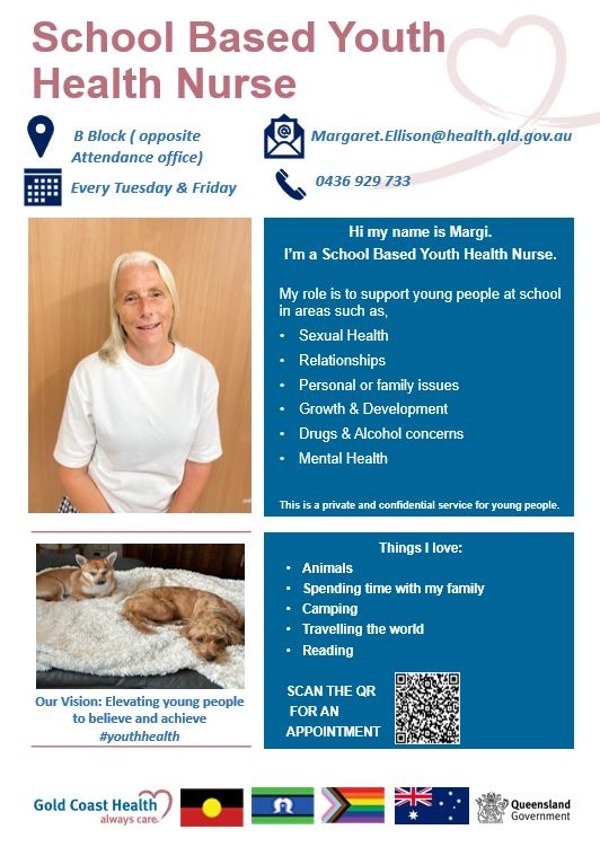Wellbeing Team News Update
Senior Secondary Guidance Officer – Steve Jones
Read the attached article for the latest information targeted to senior students of careers and pathway information.
https://pbc-shs.eq.edu.au/support-and-resources/guidance-officerSenior Secondary Guidance Officer Steve Jones (Email : sjone79@eq.edu.au)
Junior Secondary Guidance Officer - Anna Willis
The myth of ‘time healing all wounds’
It’s been more than 25 years since the traumatic death of Prince Harry’s mother after a car crash in Paris. And with his family’s immense privilege, it’s easy to assume the need to explore the layers of grief that shape his experiences has passed its use-by date. But the idea of “time healing all wounds” is a myth. Pain is ongoing. And by silencing someone’s pain, this can worsen it. Counsellors urge people to make meaning of the life lost with those still living. This can involve sharing memories with family members about the person lost, remembering happy times, imagining their inclusion in life currently, and always creating space for conversations about their absence. If people struggle to make meaning of the new life, they are forced to live due to their loss, this can lead to long-term reactions known as complex or complicated grief.
What is complicated grief?
Complicated grief is a severe, persistent and pervasive longing for the deceased. If the death is sudden and unexpected, the prolonged impact will be greater. People who experience this intensity of grief struggle to engage in everyday life. This profound distress can affect their physical and mental health, and the relationships around them, for years. Prince Harry has been candid about his struggles with mental health since his mother’s death and his fractured relationship with his wider family. He’s openly admitted to drug use to help him cope with his loss. We see these types of effects on people suffering with complicated grief, as well as the associated trauma when the loss is sudden.
Grief isn’t just about what who was lost, but when the loss occurred. Prince Harry was just 12 years old when his mother passed away. Psychologist and psychoanalyst Erik Erikson tells us this period of development between childhood and adolescence oscillates between a child seeking a sense of identity versus confusion about where they “fit” in the world. It’s a time when young people explore values, beliefs and ideas about who they might become as adults. But this stage of development is impacted with the loss of a parent to guide them through this period. When a significant loss happens at his life stage, this can destabilise the child for significant periods – well into adulthood – especially when the death is related to an external cause, such as an accident.
Prince Harry has shared this destabilising effect and the strain between himself and his surviving parent. Not all siblings experience grief the same way. There may be conflict with the wider family. Long-term studies in the United States show children who have lost a parent do eventually grow to be resilient and forthright individuals. Yet traumatic memories of both the event and the impact of that loss remain just under the surface. Grief will have long-term impacts on people’s wellbeing throughout their lives, especially if they were only a child when the loss occurred. When we look back on what helps children to manage their childhood grief, personal agency is key. They want to choose how they grieve, and their voice needs to be a priority. This may mean choosing not to attend performative activities, such as funerals. This may mean openly sharing their experiences in a way that suits them – at school, work or with families. This may mean getting angry.
An evidence-based national grief program for children in Australia, Seasons for Growth, emphasises the importance of agency. This includes choosing how to accept the reality of their loss, and finding ways of voicing the emotional impact of that loss. This won’t always be through calm, reflective sharing. It may be through frustrated, angry voices, that suddenly emerge later in life. Even with all the access to therapy, or even family members to speak to, grief will eventually show up in our thoughts, behaviours and actions. There is no discreet way to do it. Grief is both hope and sorrow.
Author: Sarah Wayland, Associate Professor, University of New England
This article is republished from The Conversation under a Creative Commons license. Read the original article.
Guidance Officer Anna Willis (Email : awill464@eq.edu.au)



